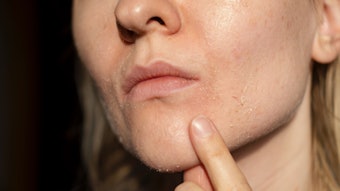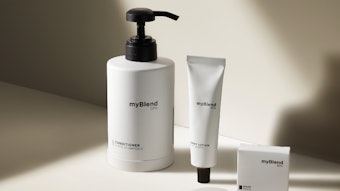From exosomes and cryolipolysis to fractional laser facials, the growing demand for innovative beauty treatments is fueling remarkable expansion in the spa and salon industry. With the global spa market projected to surpass $500 billion by 2030, the rise in specialized insurance coverage is accelerating at pace, and so are the associated risks.
This article is only available to registered users.
Log In to View the Full Article
From exosomes and cryolipolysis to fractional laser facials, the growing demand for innovative beauty treatments is fueling remarkable expansion in the spa and salon industry. With the global spa market projected to surpass $500 billion by 2030, the rise in specialized insurance coverage is accelerating at pace, and so are the associated risks.
As the industry continues its rapid evolution, staying ahead will mean proactively managing risk, keeping up with ongoing education and ensuring each business’ insurance policy reflects the evolving services it offers.
Understanding Risk in a Rapidly Expanding Market
A 2024 consumer study by the International Spa Association Foundation highlighted a growing perception of spa treatments as essential tools for stress reduction and mental wellness. The study also found repeat clients are spending more per visit, reinforcing that the trend is not only accelerating but is here to stay.
This sustained demand is promising for business owners, but it also underscores the importance of identifying risks tied to specific services. Such risks, if not properly managed, can seriously impact a business’ financial stability and reputation.
General Risks That Can Make or Break a Business
Chemical Reactions and Burns
Chemical-based treatments are a routine part of salon and spa services, ranging from hair color and smoothing treatments to facial peels, waxes and lash adhesives. While these products deliver results that clients desire, they can also trigger allergic reactions, chemical burns or irritation, especially among clients with sensitive skin. Even seemingly mild products can have unexpected effects depending on individual sensitivities or how products interact. Due to these sensitivities, chemical burn and allergic reaction claims remain frequent and costly in the salon and spa space.
Professionals need to be thoroughly trained in product use and application techniques. Asking questions about allergies, conducting patch tests when necessary and carefully reviewing ingredient labels can significantly reduce risk.
Licensing and Accountability
Licensing is a non-negotiable aspect of operating a safe and reputable salon or spa. It verifies professionals meet established health and safety standards and helps protect both clients and business owners from legal and financial fallout. Insurers will often require proof of licensure before approving coverage. Without it, salons may be held liable for injuries and may find their policies voided or claims denied. Misrepresenting licensing information on insurance applications can also lead to policy non-renewal or denial of coverage.
With the prevalence of independent contractors, confirming valid and up-to-date credentials is paramount.
Slip-and-Fall Accidents
Slip-and-falls are among the most common liability claims in the salon and spa insurance industry and can occur almost anywhere. Wet floors, spilled products or loose hair clippings all contribute to the risk. Clear signage, routine cleanups and regular facility checks are key preventative measures. Ensuring proper lighting, unobstructed walkways and dry surfaces—both inside and outside the premises—adds an extra layer of protection. Business owners can also collaborate with landlords to maintain external areas like parking lots and sidewalks.
A proactive approach to property management can help reduce the likelihood of claims and ensure a safer environment for staff and clients alike.
Protecting Your Business Through Preparation
When done right, managing risk does not require reinventing the wheel. Understanding the risks and focusing on the basics can help prevent costly insurance claims. Some of these best practice risk mitigation tactics include:
- Avoiding Shortcuts: As businesses scale to meet demand, the temptation to cut corners by skipping recertifications, reducing training or choosing cheaper products can expose them to serious risks. Prioritizing proper protocols and continuing education is non-negotiable.
- Invest in Licensing and Training: Licensed professionals invest significant time and money to meet educational and regulatory standards. In contrast, unlicensed practitioners can damage a business’ reputation and undermine industry credibility. Keeping staff trained and certified in the latest techniques and product usage is essential to avoid claims.
- Know What Your Policy Covers: Understand the full scope of your insurance coverage and its limitations. Adding new services to an existing policy is not automatic. It is critical to read policy exclusions carefully. For instance, SASSI does not cover abuse or molestation claims, which is important information for businesses offering massage services. Less expensive policies may carry even more exclusions, so always read the fine print.
- Document Everything: Thorough documentation reduces liability. Salon and spa professionals are increasingly documenting client interactions—sometimes through video, with consent—to confirm what was discussed or agreed upon. This transparency can protect both the business and the client.
Plan for the Best by Preparing for the Worst
Owners using custom or generic product mixes should be aware of ingredient risks. SASSI covers name-brand products but mislabeled or altered items can result in claims. Always confirm your policy covers such scenarios as assumptions can be costly.
For small businesses or startups, a Business Owners Policy (BOP) may offer a budget-friendly insurance option. New business owners often focus heavily on growth and overlook risk management, but this can prove detrimental in the long run.
Social media adds another layer of complexity. While positive reviews can accelerate growth, negative experiences can go viral quickly. Having de-escalation strategies and accurate records can play a key role in managing online reputation effectively.
Find the Right Insurance Partner
Partnering with a knowledgeable insurance agent or broker is essential to navigating the complexities of insurance in today’s fast-changing beauty industry. A trusted broker will not only explain the coverage you need, but also what you don’t, helping you avoid unnecessary costs, overlooked exposures or dangerous gaps in protection. Specialty insurers offer a deep understanding of the salon and spa industry, allowing them to identify potential vulnerabilities and tailor coverage to your specific risk profile with greater accuracy.
In an era marked by rapid growth, expanding services, shifting client expectations and increased public scrutiny, preparation, transparency and the right insurance coverage are your strongest safeguards. Protecting your business, staff, clients and reputation starts with choosing the right partner and staying informed every step of the way.










